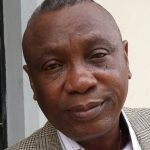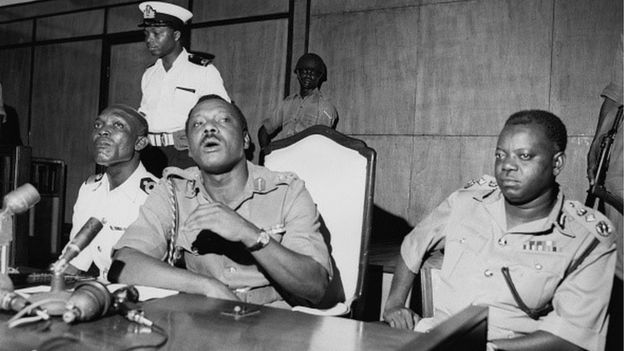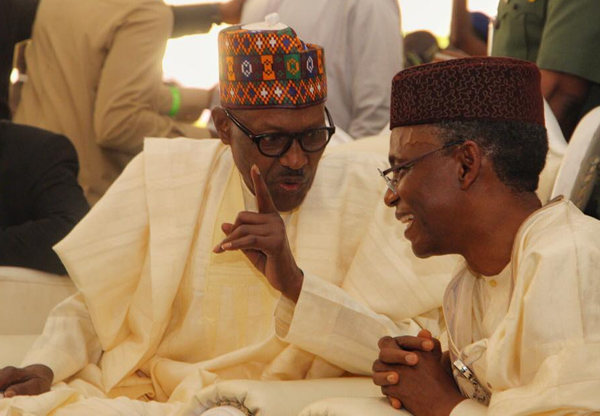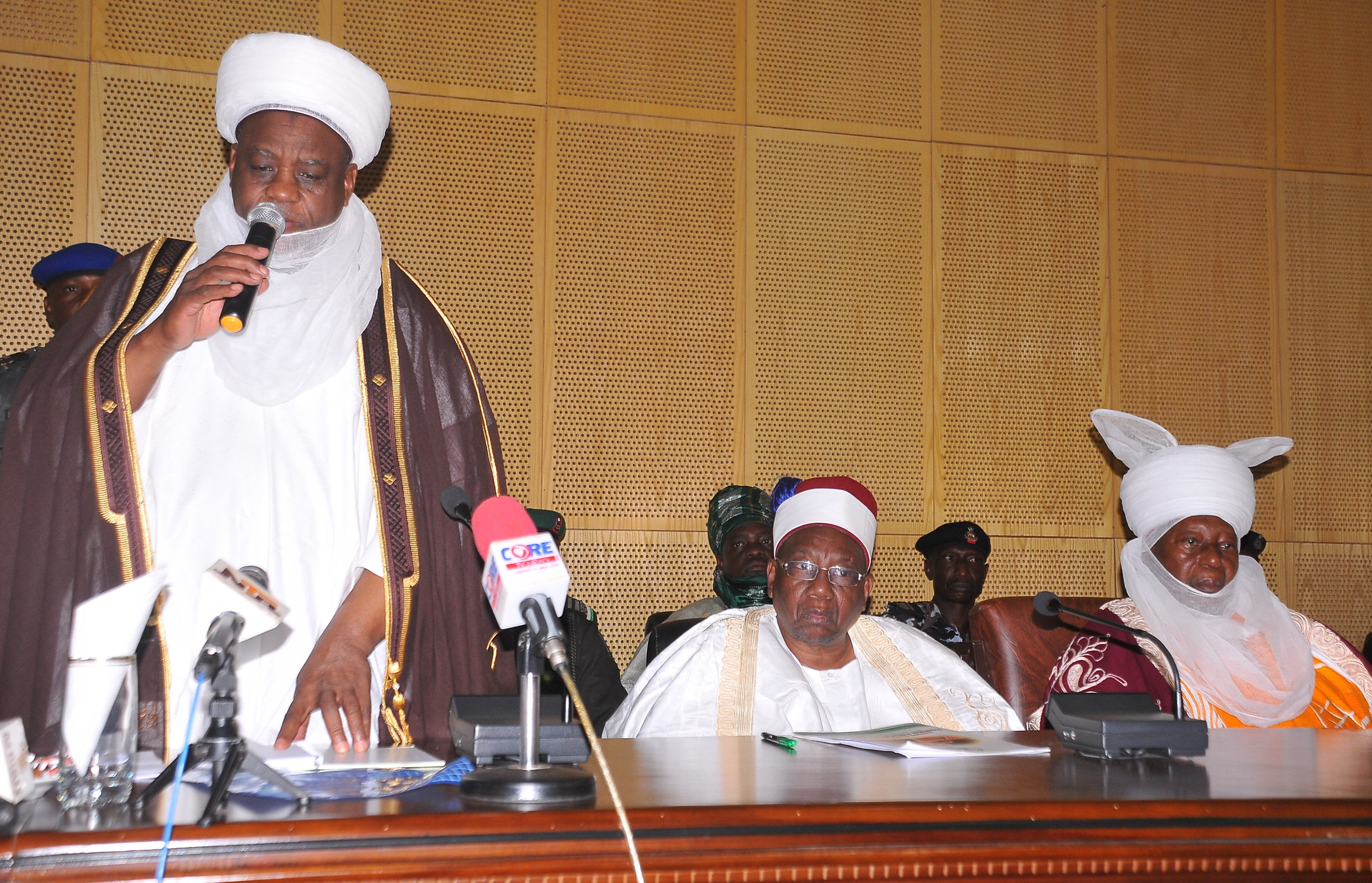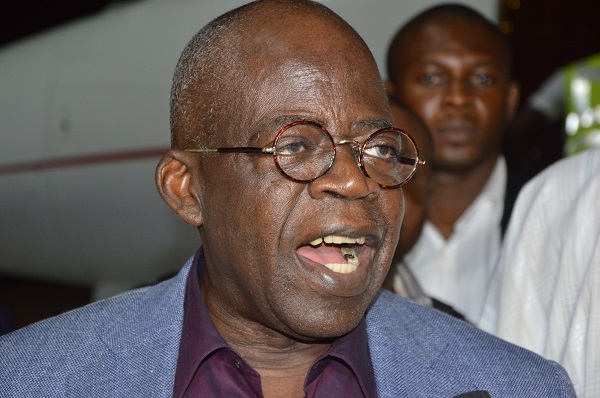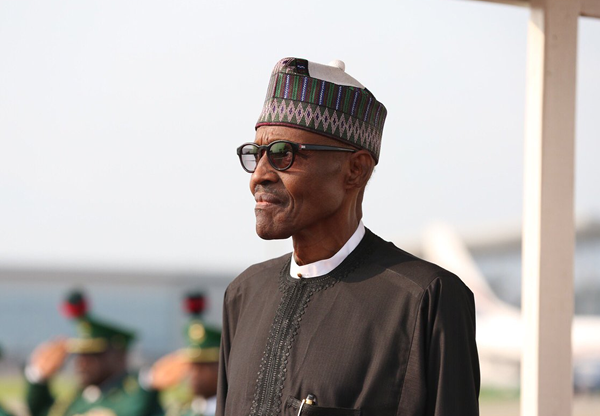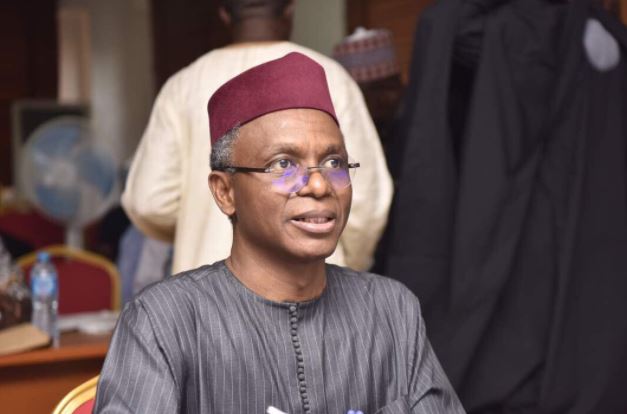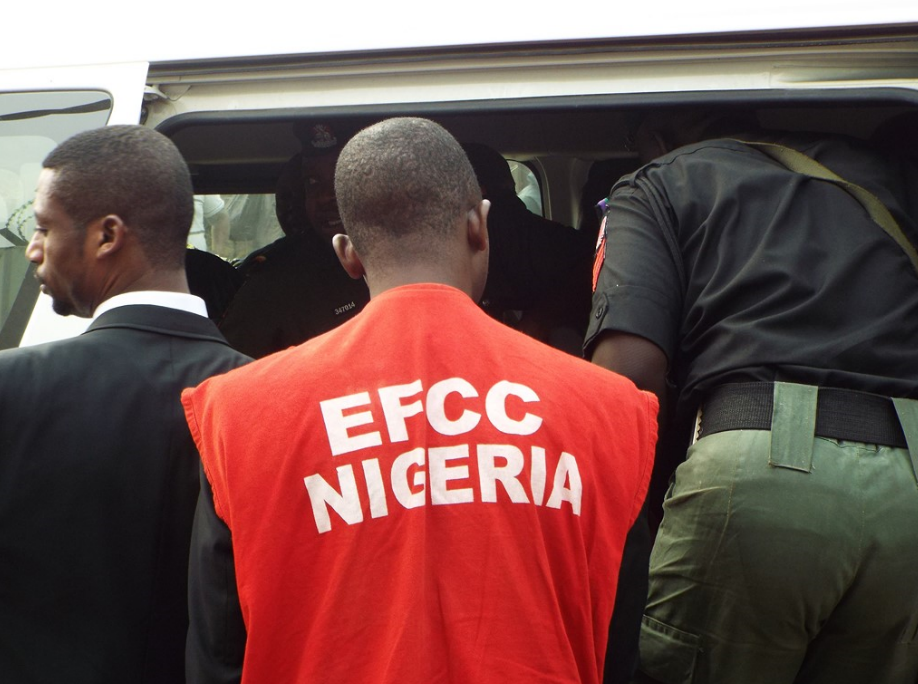As Minister of Defence between 1960 and 1965, Alhaji Muhammadu Ribadu (1910-1965), from Balala in the present Adamawa state, took two major decisions—one controversial and the other non-controversial in his Nigerianisation agenda of the Nigerian Army. Let us treat the controversial one first.
The last British Commandant of the Nigerian Army, then referred to as General Officer Commanding (GOC) but now named as Chief of Army staff, Major General Earle Christopher Welby Everard (1909-1996) was set for retirement in 1965, so the post of GOC was set to become vacant. There were four candidates vying for the post. They were Brigadier Babafemi Ogundipe (1924-1971) from Ago-Iwoye in Ogun state, Brigadier Zakariya Abubakar Hassan Maimalari (1930-1966), a royal Prince from Maimalari village in the present Yobe state, Brigadier Samuel Adesujo Ademulegun(1923-1966) from Ondo city in Ondo state and Brigadier General Johnson Thomas Umunnakwe Aguiyi Ironsi (1924-1966) from Umuahia-Ibeku in the present Abia state.
The four Brigadiers were commissioned in 1949. Brigadier Ironsi was NA3, Brigadier Ademulegun was NA4, Brigadier Ogundipe was NA6 while Brigadier Maimalari was NA8. In his book titled ’A RIGHT HONOURABLE GENTLEMAN’, Mr Trevor Clarke, a British Colonial Administrator claimed that Major General Everard recommended Brigadier Ogundipe to succeed him while the Former Premier of Northern Region, Sir Ahmadu Bello (1909-1966), the Sardauna of Sokoto, wanted Brigadier Ademulegun. Senior officers within the Army favoured Brigadier Maimalari. In the end, the powerful Alhaji Ribadu, who was at that time, being referred to as ‘Deputy Prime Minister’ selected Brigadier Ironsi, a Congo war veteran and was later promoted Major General. The appointment according to Mr. Clarke was ‘contentious’ at that time. The other non-controversial decision by Alhaji Ribadu was the establishment of the Defence Academy in Kaduna.
According to the bulletin of the Nigerian Defence Academy, Kaduna, the Nigerian Defence Academy was established in 1964 to replace the Nigeria Military Training College (NMTC) for the purpose of producing junior leaders (officers) for the Nigeria Armed Forces. Hitherto, Nigerian Armed Forces Officer Cadets were trained in oversea countries, notably Royal Military Academy 1(RMA), Sandhurst England, German Air Force Academy and Teshie Military Academy, Ghana. The First Regular Course (Regular Course 1), which consisted of Army and Navy Cadets only of the duration of 3 ½ years. Air force Cadets were later admitted and trained with the subsequent countries. The outbreak of the Nigeria civil war in 1967 made it imperative for the Emergency Commission Course(ECC) to be introduced to produce officers for the prosecution of the war. The duration for this type of training ranged between 4-8 weeks.
Advertisement
The ECC was eventually phased out at the end of the war in 1970 when the need to produce officers of such cadre in the Nigerian Armed Forces was no longer as pressing. In its place the Short Service (Combatant) Commission (SSC) course as introduced with a duration ranging between 6-9 months. This type of training draws largely on the pool of graduates from the Nigeria Universities and other technical colleges to meet the manpower need of the Nigerian Armed Forces on a short-term basis.This type of training was designed to give the cadets essential professional knowledge that will enable them to be competent platoon commanders in their respective units on commissioning. Cadets from other sister African nations have also been trained all along in this august institution.
In the mid 1990s the three services of the Nigeria Armed Forces namely: The Army, Navy and Air force transferred the training of their cadets under the direct short commission (DSSC) course to the NDA. With this, uniformity in training standards for officers of the respective services of the Nigerian Army Forces has been achieved. Prior o 1979, the regular (combatant) commission (RC) course with the exception of the First Regular Course(known as RCI) ran for a period of two and half years (2 ½ years); one and half years (1 ½ years) for academics and one year for purely military training. The course duration was eventually increased to 3 years. Cadets were awarded the Nigerian Defense Academy Certificate of Education (NDACE) on successful completion of their academic programme. The University of Ibadan moderated this programme, the certificate awarded was an equivalent of the higher school certificate of the general certificate of education (advance level) in order to meet up with global changes, and modernization of the military, the NDACE program was phased out in 1985.
The academy was then upgraded to a degree awarding institution with modified objectives to include pursuit of learning in military science and technology, engineering and liberal arts. The period of training was thus increase to 5 years in line with expansion. The 4 years of this was for academics and 1 year for purely military training. The NDA by this token, has become a mixture of parade ground and playing field, laboratory and library, university and technical college designed to make the officer of today a highly trained and all-round qualified individual who is able to meet up with international standards in a global setting in which he could be called upon to operate.
Advertisement
The following have served as commandants of the Academy:Brigadier M.R. Varma 1964–1969 (Indian national and 1st Commandant of the NDA),Major General David Ejoor 1969–1971 (1st Nigerian Commandant),Major General Adeyinka Adebayo 1971,Major General E.O. Ekpo March 1971-February 1975,Brigadier Illiya Bisalla February 1975-August 1975, Brigadier Gibson Jalo August 1975-January 1978,Brigadier E.S. Armah January 1978-July 1978, Brigadier Joseph Garba July 1978-July 1979, Brigadier Zamani Lekwot July 1979-1982, Brigadier Abdullahi Shelleng 1982–1983, Major General Paul Tarfa 1984–1985, Lieutenant General Salihu Ibrahim 1988–1990,Lieutenant General Garba Duba 1990–1992,Lieutenant General Aliyu Mohammed Gusau 1992–1993,Lieutenant General Mohammed BalarabeHaladu, Air Vice Marshal A.M. Daggash,Major General Bashir Salihi Magashi 1998–1999,Major General Harris Dzarma (2006–2008), Major General Mamuda Yerima 2008–2010,Major General Emeka Onwuamaegbu 2010–2013, Major General Muhammad Inuwa Idris December 2013 – August 2015,Major General M.T. Ibrahim August 2015–date.
The Academy today has had 68 regular courses. To date members of course 3 have been outstanding. Those of them alive gathered in Kaduna last week to celebrate their 50th anniversary. It was with pomp and pageantry. They were admitted on September 3 1967 and were 45 in number. Those of them alive are Lt Colonel Abdulazeez Sabo Aliyu (rtd), Rear Admiral Isaac Areola(rtd),Colonel Oladele Raphael Aro(rtd), Rear Admiral Wilfred Arokodare (CFR) rtd, Commander Moshood Babatunde (rtd), Major General Mufu Balogun, CR mni (rtd), Lt. Col. William Gonsum Bemana, Colonel Idu Ijachi Enonche, Rear Admiral Rufus Oladip oEyitayo(rtd), Major General Chris Abutu Garuba,CFR, Major General Alwali Jauji Kazir, CFR, Lt. General Samuel Victor Leonard Malu, CFR, Brigadier-General David Alechenu Mark (rtd) GCON, Major Emmanuel Clifford Mnyim (rtd), Major General Yunana Nom (rtd),Lt. Col Fidelis Ogiri Ochefu (rtd), Brigadier Jonathan Babatunde Ogbeha(rtd), Lt Col Anthony Ojomo (rtd), Brigadier General Oluwole Bayo Olorunkunle (rtd), Rear Admiral Andrew Omaolo Stephen Okoja (rtd), Brigadier-General Adetunkji Idowu Olurin, Lt. Col. Samuel Oladoy eOsho, Rear Admiral Festus Bikepere Porbeni(rtd), Brigadier-General Raji Alagbe Rasaki(rtd),Major General Bara’u Suleiman Said, Major General Timothy Mai Shelpidi (rtd) and Lieutenant George Ugah(rtd).
Deceased course mates are Major General Alabi Kareem Adisa, Col. BziguLasaAfakirya, Major Henry OluwoleAjibade, Vice Admiral Okhai Michael Akhigbe,Lt Col Michael Alao, Major Oheme Clement Egba, Major Moses Ideho, Lt.Col. Dickson OvieItete, Colonel Auta Madaki, Capt. Innocent Madugu, Major Johjonny Jesuram Nayina, Brig-General James Lasun Odeleke, Major Donatus Edoka Ojabo, Lt.Col Johnson OlasupoOpesanmi,Air Vice Marshal Babatunji Osibo, Wing Commander Adamu Chema Sakaba and Lt Commodore Sunday Umoh(NN) (rtd).
The adopted members were Captain Samson OisaimorenEhiede(rtd), Lt Col Isaac OlujideOlukunle(rtd) and Rear Admiral David Anthony Onoja. Brigadier General David Mark (rtd) is at present the President of the alumni while Brigadier General TundeOgbeha(rtd) is the spokesman/co-coordinator.
Advertisement
In the words of former Head of State, General Ibrahim Babangida, he identified the brightest officers among the Course 3 and worked with them. General Babangida, who gave this revelation in the yet to be published ’LEADERSHIP CONVERSATION BOOK ON IBB titled ‘HOW TO BUILD A NATION’, explained the emergence of IBB Boys during his reign as the military president. According to him,”most of them (IBB Boys) are military officers. That’s number one. Most of them were my students whom I trained in the military school. I taught most of those chaps in the army. Most of them also, I knew them personally. I know the brightest among them. Most of the brightest among them were the ones I encouraged to go to where I was. I talk with them and argue with them because they were very, very, intelligent. That was the beginning of the concept called IBB Boys. And during the war, we were always together. They were my subordinates There problem was always my problem. This is what leadership is all about. Now they are grown up. They are matured people. They can now be called IBB Elderstatemen. But I maintained that relationship with them. I was quite accessible to a lot of them. They are very, very good boys, from NDA 3 (Nigerian Defense Academy),people like Senator David Mark, General Chris Garba, Senator Tunde Ogbeha… and the rest of them. I interacted with them a lot. I got to know them and they got to know me, and thoroughly enjoyed it(the relationship), he further said.
General Babangida however noted that even in retirement, he has maintained a relationship with Regular Course 3. “The role I have to play now in their lives is to maintain a good relationship with them. That is what I do. We all respect each other. And we get to know what everyone is doing. If there are any requirements of any kind, the person comes and we discuss, share ideas, I give advice with the benefits of my experience and we find a common solution to it. Thatall”.
Teniola is a former director at the presidency.
Advertisement
Views expressed by contributors are strictly personal and not of TheCable.
Add a comment
